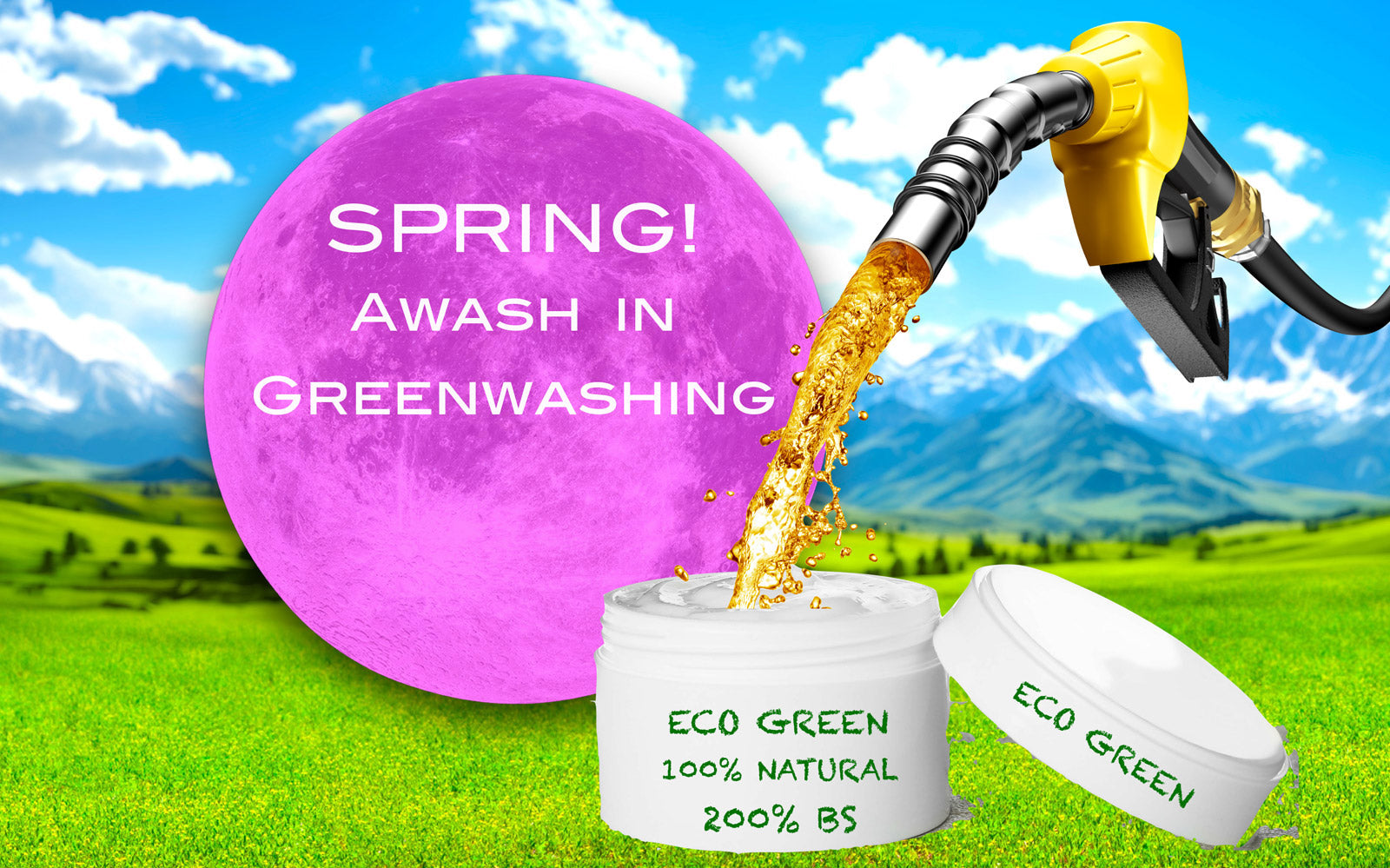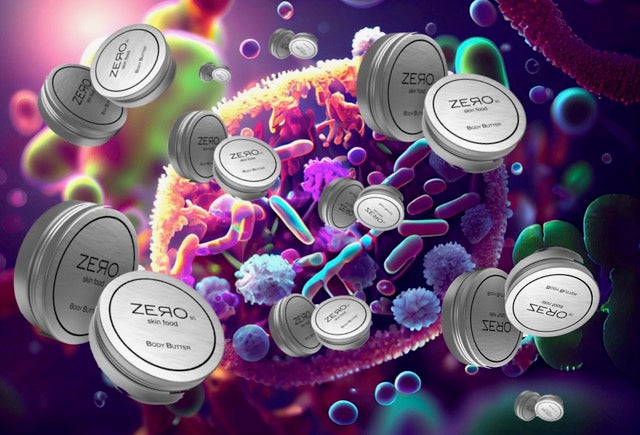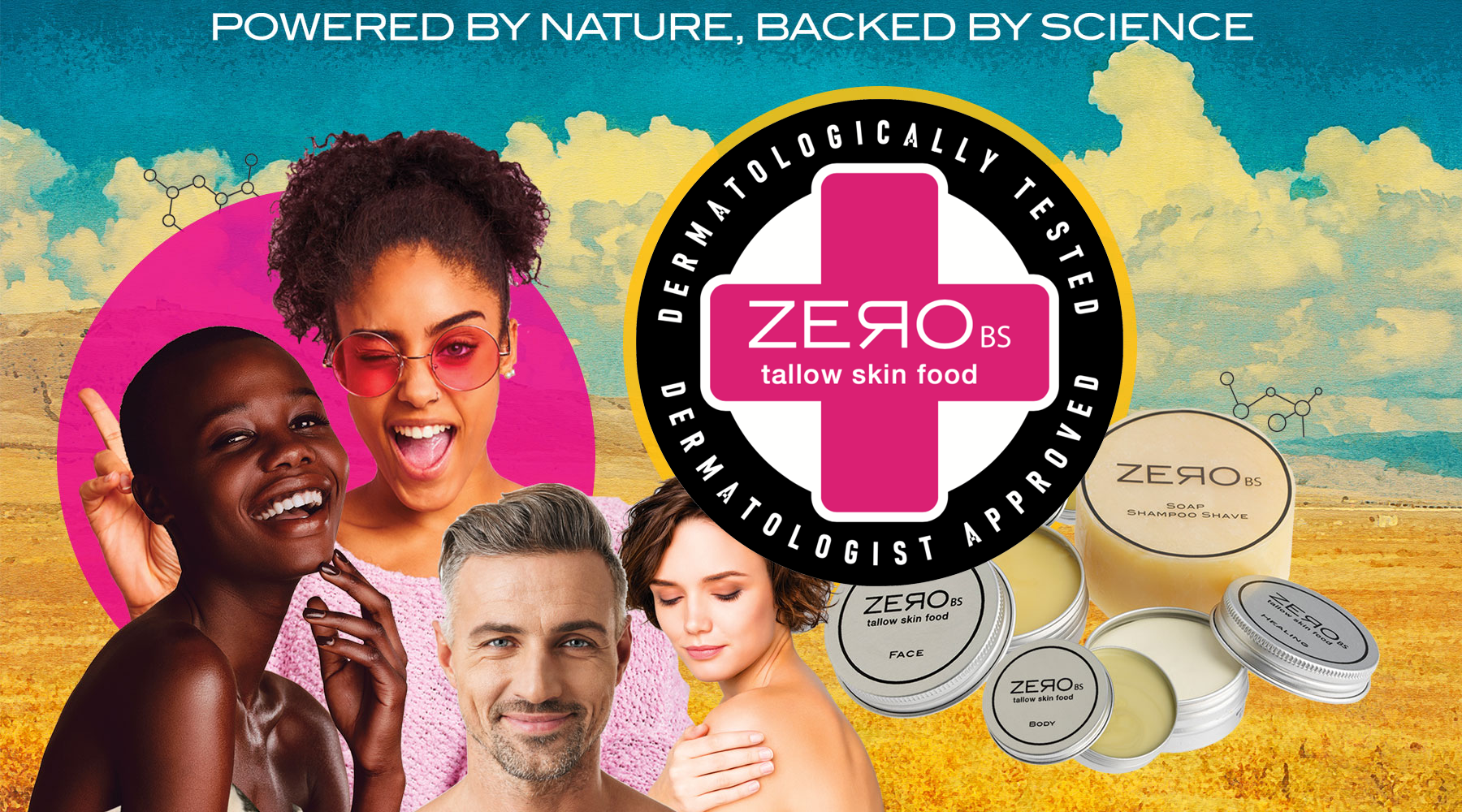
Spring! Awash in Greenwashing
Greenwashing: to deceive consumers into believing that a company’s products are environmentally friendly.
Spring is a time for renewal a time to take stock and to make different choices. But in a world driven by convenience and consumption, it's all too easy to overlook the hidden costs of our choices, especially in the realm of cosmetics. The beauty industry, which has always aimed to enhance our appearances, often relies on less-than-beautiful practices that contribute to the planet's environmental woes. This blog delves into the alarming realities of fossil fuel capitalism and its pervasive impact on the cosmetics industry.
Did you know that together the 5 biggest fossil fuel companies earned over 200 Billion dollars in profits last year alone.
At Zero BS we are by no means environmental warriors. Our company does have a carbon footprint but we are trying our best to keep the fossil fuel industry out of our product, production line and packaging. We do our bit by not mindlessly adding to the problem. We wrap our soap in biodegradable cellophane. Our merchandising stands are made of cardboard. When possible our products are wrapped in paper or cardboard or recycled bubble wrap. And of course our ingredients are all food grade, biodegradable and naturally petroleum and petroleum-derivatives free.
Now this might sound like Greenwashing because some might accuse us of being hypocritical. After all our main ingredient tallow, comes from cattle farming, which can have a significant impact on carbon emissions due to various factors, including methane production, deforestation for grazing land and GMO feed crops. However, there are important differences between conventional cattle farming (factory farming) and more sustainable approaches like certified grass-fed, free-range, farming practices, which is where we source our raw ingredient to make our own tallow.
Proponents of grass-fed and free-range cattle farming argue that these practices can result in lower methane emissions compared to intensive feedlot operations. Cattle that graze on their natural pasture diets tend to produce less methane compared to those on high-grain GMO soya and corn diets.
Grass-fed systems have a lower impact on deforestation since they rely more on natural pastures rather than clearing land for feed crops. Grass fed, regenerative farming practices focus on building healthy soil, which will sequester carbon. Pulling it out of the atmosphere and locking the CO2 into the soil, thereby offsetting emissions and creating a carbon negative system.
But most importantly our main ingredient tallow is a by-product of the meat industry. It is not coming from the animal's soft body fat but rather suet (the hard fat that the surrounds the kidneys) and although incredibly healthy and nutritious sadly, due to the vegan movement, it has been removed from the ingredient list of many foods, especially in baked goods. Including foods like traditional xmas puddings, pastries and Oreo Cookies that used to make their creamy centre out of suet, until they switched it out for palm oil. Also used prolifically in the commercial cosmetics industry, palm oil production and demand is increasing rapidly. Such expansion comes at the expense of tropical forests—which form critical habitats for many endangered species and the impact on the environment including the loss of carbon-sequestering and biodiverse forest land.
Enter stage left, Greenwashing: A Wolf in Eco-Friendly Clothing. Both fossil fuel and cosmetics companies are masters at painting themselves as eco-friendly entities while continuing to profit from unsustainable practices. They tout their investments in green technologies and display images of pristine landscapes to convince us of their dedication to the environment.
Greenwashing in the cosmetics industry runs more than skin deep.
An estimated 85% of the cosmetics industry sources its ingredients from the fossil fuel sector. It's not just about the overtly petroleum-based ingredients like mineral oils, petroleum gel, tissue oils and paraffinum liquidum to name a few. Many seemingly innocent “natural “ ingredients have connections to the fossil fuel industry, and it's time we shed some light on these hydrocarbon-based ingredients.
Companies like L’Oreal, Kiehls and Body Shop to name a few, use ingredients in a number of their moisturisers like Nylon 66. Not even trying to come up with a more sophisticated name, Nylon is just that, a plastic polymer that is touted as a shine reduction, a silky feel to skin, and creating a full and smooth appearance. But at what cost? Polluting our environment with micro plastics? And that’s not all, most of the added vitamins and preservatives that you will find in a number of your eco cosmetic brands are fossil fuel derived. Vitamin E, K, A and C are all synthesised from petroleum derivatives.
Companies don’t need to label synthetic vitamins. Glycerin for example found in many so called natural eco soaps, shampoos, moisturises, even toothpaste, is touted as a vegetable derivative but is manufactured from plant matter, petroleum and animal fats that is washed and purified with chemical bleaches which can inflame skin and lead to conditions like acne, eczema and psoriasis. Sadly you just don’t know what you are getting in your “natural” Glycerin soap. Throwing the words Eco or Natural onto your label does not make your product a friend to your skin or the environment.

In the early days, when we were manufacturing our product out of a very respected cosmetics manufacturing plant that would manufacture for a number of so called eco friendly companies, I would often see trucks delivering barrels from SASOL (South African Coal, Oil, and Gas Corporation) not to power up the generator but to drop off the main ingredient for a number of cosmetic companies. Petroleum gel by the truck load.

10 years ago I met a man who worked at the Johnson and Johnson factory in the Eastern Cape province in South Africa. He told me that J&J were producing 30 thousand units of product per shift and they run three shifts a day that’s 90 thousand units a day for 360 days of the a year. If those were 100ml tubs that would equates to 275 million litres of product a year from one factory. All that petroleum gel goes somewhere, mostly washed off into our eco system.
The Petroleum Industrial Complex - 200 Billion dollar profit last year alone. But who is left to cleanup the mess?
To understand the size of that number think about this. 200 billion seconds would take you 6400 years to count. Counting backwards would put you in the Neolithic Age, which is basically where the fossil fuel industry is leading us back to at this current rate of production.
As consumers, we have the power to demand transparency and accountability from companies. Become a label detective. Familiarise yourself with common fossil fuel-derived ingredients and opt for products that prioritise natural, eco-friendly alternatives. Raise your voice on social media or through petitions to encourage brands and policymakers to prioritise sustainability.
We may not all be environmental warriors, but every small step counts towards a more sustainable future. As a company committed to creating positive change, we acknowledge that we're not exempt from these challenges. While we can't undo our past choices, we can certainly pave the way for a more responsible and mindful cosmetics industry. Let's unmask the truth, dispel greenwashing, and strive to make a real impact, one product at a time.




Leave a comment
This site is protected by reCAPTCHA and the Google Privacy Policy and Terms of Service apply.